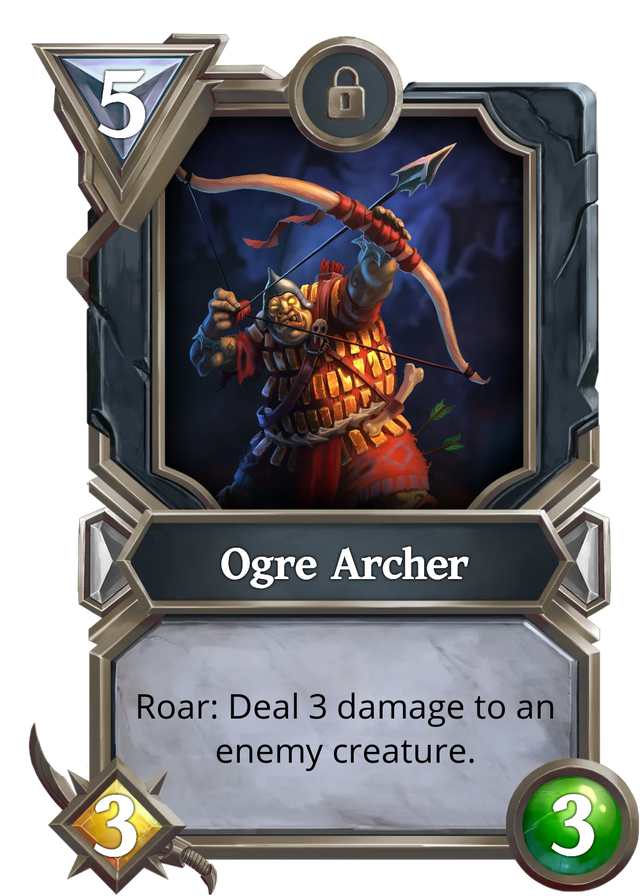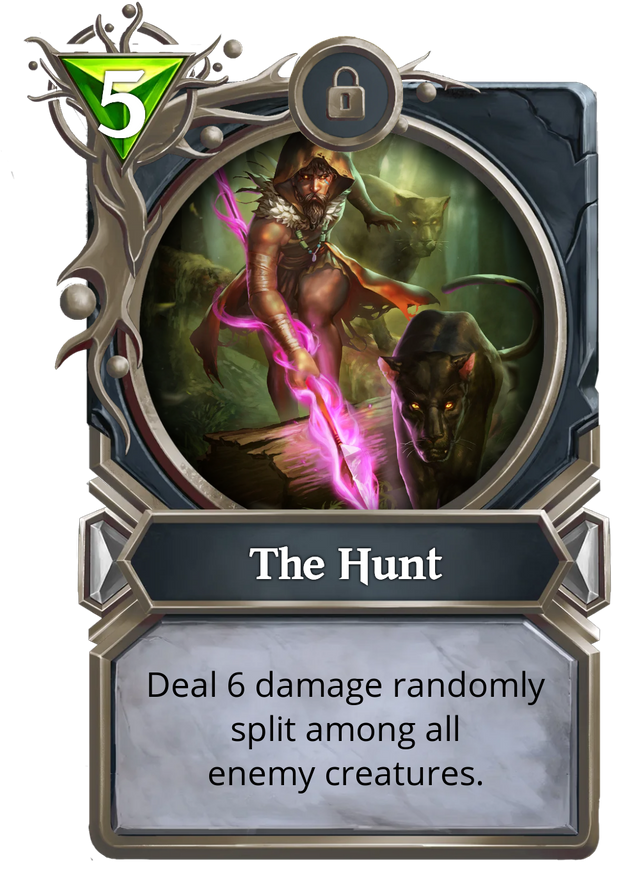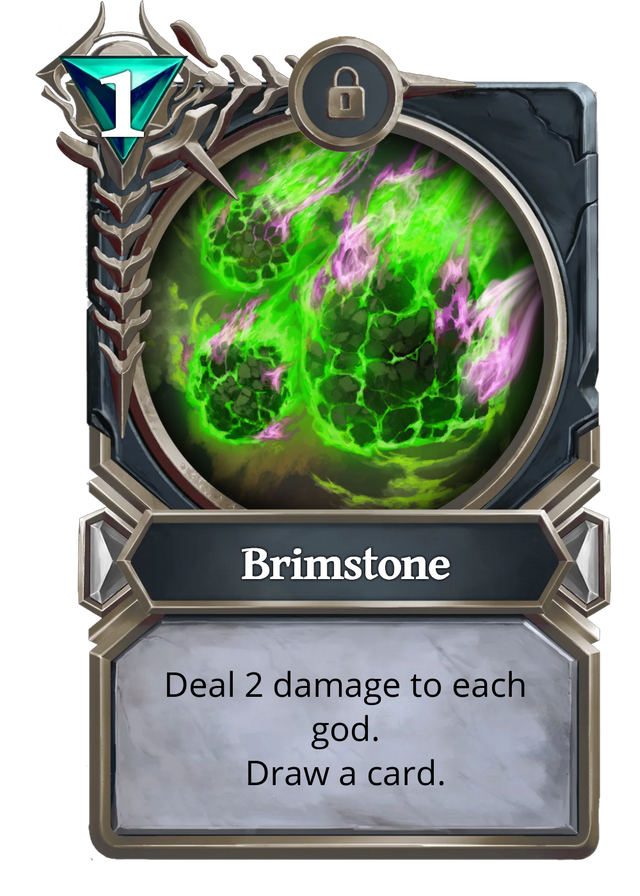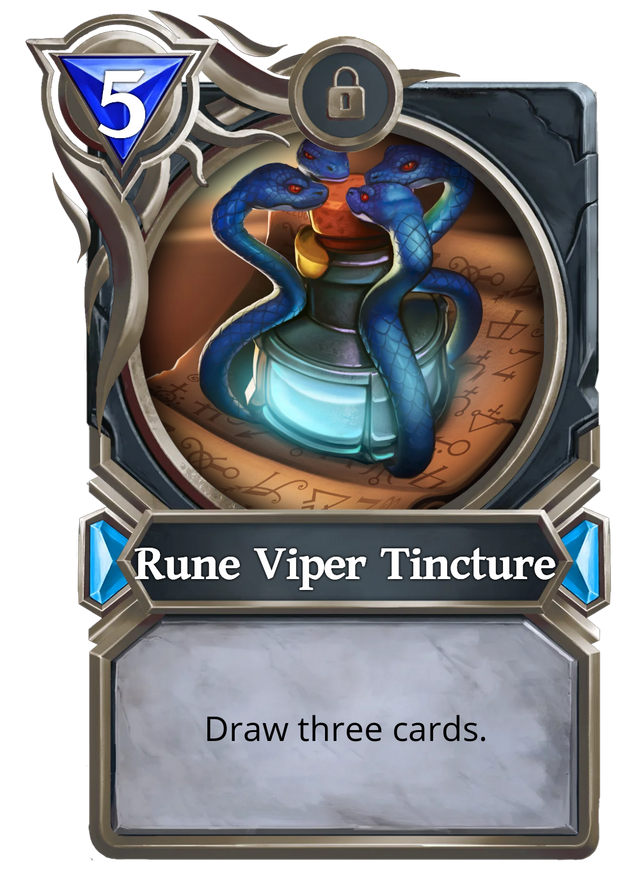The key to winning in any card game is getting advantage over the other player and keeping it until you win. In Trading Card Games like Gods Unchained (and Magic: The Gathering) this is called card advantage in its simplest form is how many cards you used to get or remove cards.
How we're scoring advantage:
- simple math (number of cards got - number of cards used) = total advantage i.e. 2-1 = +1
- a ratio (cards got:cards used) i.e. 1:1.
Types Advantage:
Board: More creatures and relics on the board. It is dangerous to have fewer creatures than your opponent or to have less potential damage than they have total creature health.
An example of card removal on the board is the Ogre Archer which you can typically remove 2 creatures.

One with its roar for 3 damage and one when it attacks. This would be a 2:1 trade since we used one of our cards to take out 2 of theirs.
Another example is The Hunt. This could be a 6:1 trade but might be 0:1 trade since we used one of our cards to do 6 damage split between all the enemy creature. With 6 enemies on the board with 2+ health each results in zero creatures cleared.

Hand: Having more cards in your hand vs your opponent is important because it gives you more options for responding to your opponents actions. It is dangerous to have an empty hand and rely on the top card of your deck (commonly called top decking).
An example of neutral hand advantage is Brimstone which you use one card to draw one card 1:1 trade. Now it also has direct damage to each god's health for 2 damage which doesn't doesn't widen the health difference which is also neutral.

Deck: It is helpful to have more cards remaining in your deck then your opponent. There doesn't seem to be any true milling cards in Gods Unchained, but you do have to be aware of cards like Rune Viper Tincture that draw more cards out of your deck. Positive hand advantage which you use one card to draw three cards 3:1 trade.
When you run out of cards in your deck you will hit Depletion which gains 4 mana locks for each card you are unable to draw. If a player ever has all their mana gems locked, and they try to draw a card from an empty deck they lose the game.

Void: Depending on the type of deck or god you are using having more cards in the void vs your opponent can be an advantage or disadvantage.
Getting More Advantage:
Card selection: Cards which allow you to control which card you draw or know what cards are coming up. Like Read The Leaves.
Recurring effects: Cards which allow you to add more cards to your deck or effects to creature continuously. Like Choralis Rune Moth
Tempo: This is using your cards faster than your opponent but in a way that denies them the time to build a significant board state. This is normally done with direct damage cards like Wyrmbreath or relics, because it doesn't matter if they have awesome cards in their hand if they are already dead.
Last Call:
Hopefully this gives you a basic understanding of card advantage that you can take into your matches. Making smart decisions will lead to more wins. See you next time.
Congratulations @verbalshadow! You have completed the following achievement on the Steem blockchain and have been rewarded with new badge(s) :
You can view your badges on your Steem Board and compare to others on the Steem Ranking
If you no longer want to receive notifications, reply to this comment with the word
STOPVote for @Steemitboard as a witness to get one more award and increased upvotes!
Downvoting a post can decrease pending rewards and make it less visible. Common reasons:
Submit
I love that so many people are using Steem to write articles about God's Unchained!
Downvoting a post can decrease pending rewards and make it less visible. Common reasons:
Submit
Seems like a good platform for articles. The crypto tie-in doesn't hurt though.
Downvoting a post can decrease pending rewards and make it less visible. Common reasons:
Submit